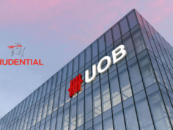
5 Interesting New Details in BNM’s New Digital Insurance & Takaful Draft Framework
by Vincent Fong November 29, 2022On Friday, Bank Negara Malaysia (BNM) issued its exposure draft for digital insurance and takaful operators (DITO) for written feedback following the issuance of the Discussion Paper in January this year.
As part of the licensing application process, BNM will require applicants to submit a comprehensive five-year business plan, which includes, among others, planned measures to effectively manage technology and cyber risks in delivering its products and services.
BNM aims to finalise the Policy Document and invite applications for the licenses in 2023. Up to five licenses may be issued to applicants that meet all requirements.
New Details on the Eligibility Criteria and Application Process
The eligibility criteria largely remain the same, DITOs are expected by BNM to contribute positively to the insurance and takaful sector in three ways namely; inclusion, competition, and efficiency.
Notably, under the eligibility criteria for “competition” the following was added in the new draft, indicating a preference by the central bank for new entrants to not directly compete with existing incumbents serving existing markets and to instead focus on the uninsured and underinsured.
Applicants must be able to clearly differentiate themselves through the offering of innovative insurance/takaful products and value-added services to consumers. This must be supported by a sound understanding of the pain points faced by customers or, the needs and preferences of new customers that may not be served by existing licensed ITOs (insurance and takaful operators).
Under the eligible business model section, the new draft also added that intermediaries such as enablers, agents, brokers and managing general agents are scoped out from this framework as these intermediaries do not assume any insurance/takaful risks and have no obligation under the insurance policy/takaful certificate.
More details are also made available on the application process, specifically, BNM stated in the document that applicants must put in a formal application within 6 months of the license application period being announced. The central bank is however seeking feedback from the industry to determine if 6 months is sufficient for industry players to put in their applications.
Additional Details and New Requirements on the Foundational Phase
The minimum capital requirement of RM 40 million remains the same, the document now specifies that upon exiting the foundational phase, a licensed DITO will need to comply with all requirements applicable to existing licensed insurance and takaful operators which includes maintaining a paid-up capital of RM 100 million for each licensed entity.
Similar to the digital banking framework, the foundational phase is put in place to facilitate new digital business models. Approved DITOs are required to operate for a minimum of three years but no more than 5 years unless approved otherwise by Bank Negara Malaysia.
Dual DITO Licenses
The new draft also specified that if an applicant is looking to operate both general and life/family businesses, they are required to apply for two licenses. For DITOs with two licenses, they are expected to maintain a minimum paid-up capital of RM 30 million each instead of RM 40 million and a minimum paid-up capital of RM 100 million each.
They are also expected to appoint a different dedicated person to be its appointed actuary and have separate resources for its business functions including for underwriting and claims management. The document explains that this is due to the “different nature of risks between the general insurance/general takaful business and the life insurance/family takaful business”.
Exit Plan Requirements
The new exposure draft also included a new segment requiring applicants to submit an exit plan. If a licensed DITO fails to graduate from the foundational phase, they are required to implement its exit plan.
As part of the exit plan, applicants are required to demonstrate they are able to extract real-time data on customers upon request and the ability to ensure continuity of services throughout the implementation of the exit plan.
More Details on the Shareholder’s Assessment
The document indicates that BNM will now additionally look at shareholders’ suitability as part of their assessment process. It specified that shareholders collectively must demonstrate the ability to contribute in the following areas; risk and compliance, application of technology particularly to address critical gap areas, access to deep and robust consumer analytics, ability to continuously serve as a source of financial strength, and shariah expertise for applicants pursuing a digital takaful license.
The document also stated that BNM may suggest that a shareholder who holds an aggregate interest of above 50% of shares to organise all its financial-related subsidiaries under a financial group, headed by a single apex entity, which may be either a licensed person or a financial holding company.
New Flexibility on Physical Distribution Channels
The previous document had heavier expectations for DITOs that rely almost solely on digital channels for all its critical functions. The new draft seems to indicate more flexibility towards using physical channels for distribution.
It allows for DITOs to ultilise limited physical access points to reach out to unserved and underserved segments especially in cases where the necessary digital infrastructures are unavailable. This may include limited physical access points to facilitate the submission of certified documents for claims, post-sales customer services, and handling of face-to-face customer complaints.
The document also newly specified that DITOs will not be permitted to engage, appoint or use the agency and bancassurance/bancatakaful channels that rely on face-to-face or in-person interactions with consumers for product distribution.
There’s also an entire section of distribution through embedded finance, signalling a possible preference of BNM towards this business model.
Feedback on the Exposure Draft can include clarification or elaboration and alternative proposals. BNM welcomes written feedback, backed by clear rationales, to be submitted by 28 April 2023 to DITF@bnm.gov.my








